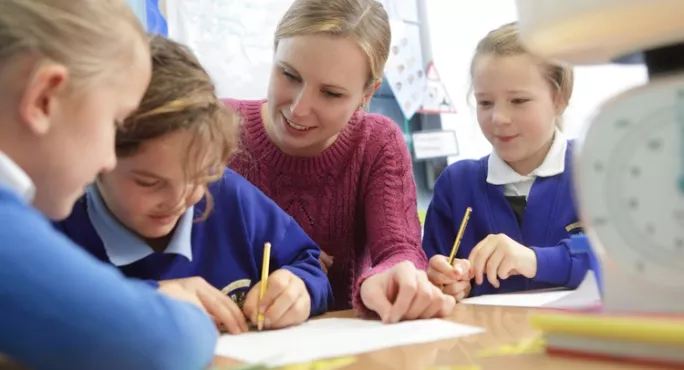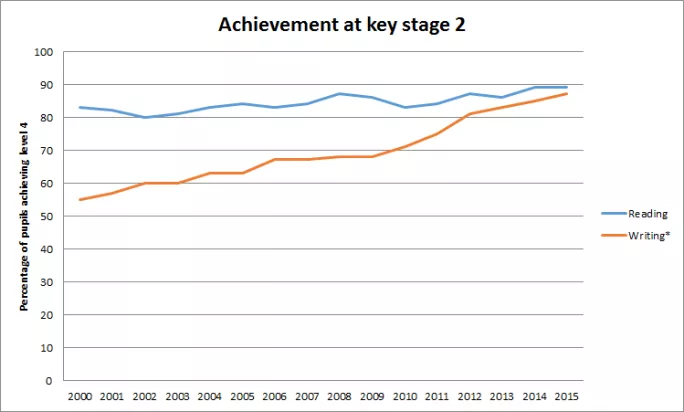- Home
- New data on Sats reading test sparks fresh calls for suspension of league tables
New data on Sats reading test sparks fresh calls for suspension of league tables

New data relating to the controversial reading test published today has heightened headteachers’ concerns about the “assessment chaos” around Sats.
Department for Education statistics reveal that the variation between local authorities’ results is widest in reading. Just 52 per cent of pupils in Peterborough achieved the expected standard this year, compared with 81 per cent of pupils in Richmond-upon-Thames. This gap of 29 percentage points contrasts with the biggest gap of just 12 percentage points between authorities last year.
A similar variation is seen in writing, where 58 per cent of pupils in Swindon, Dorset and Calderdale were judged to be at the expected level, compared with 84 per cent of those in Hackney and Havering. This gap of 26 percentage points contrasts with the biggest gap of just 11 percentage points last year.
Russell Hobby, general secretary of school leaders’ union the NAHT, said: “Attainment data shows wide variation in results between local authorities, particularly in reading and writing, the two areas of assessment in which we have most concerns.
“This year’s assessment system has been characterised by chaos and confusion.
“There is still time for the government to reconsider the publication of inaccurate institutional data in December, and we again ask them to do this. The government should suspend the floor standard for 2016, halt interventions based on the misleading results and place a strong health warning on the national statistics.”
And teaching union the NUT repeated its warning that a boycott of the 2017 tests may be considered unless changes are made. “Today’s provisional 2016 key stage 2 results need to be taken with a large pinch of salt,” said Kevin Courtney, its general secretary. “They are the outcome of a chaotic process of assessment, hastily introduced and badly designed.
“The data tells us little about educational quality that we can trust. Yet it will be used to judge the performance of schools, and in hundreds of cases to judge them as failing. This is completely unacceptable. Teachers and headteachers believe that there is no case for intervention, action or ranking of schools on the basis of data which is meaningless as a measure of quality.”
When heads initially called for the suspension of league tables recently, the Department for Education said it remained “committed to working with teachers and headteachers as we continue with our primary assessment reform”.
This year’s reading test was criticised for leaving children in tears and for being “too middle-class”. When the national results were published in July, it was revealed that just 66 per cent of pupils had reached the expected standard. This was fewer than the 74 per cent who had reached the expected standard in writing - a fact that shocked teachers.

*Writing test results from 2000 to 2011, writing teacher assessment results from 2012 to 2015. Source: DfE and predecessor departments
Today’s results also reveal that teacher assessments of reading were far higher than the test scores.
While 66 per cent of pupils reached the expected standard in the test, 80 per cent were working at the expected standard according to their teachers.
‘The misuse of data’
The government said that the discrepancy in previous years between teacher assessment and test scores had been just one or two percentage points.
“This may be due to pupils performing less well on the tests as they were unfamiliar with them. In addition, the teacher assessment framework was new in 2016 and teachers may need more time to become fully confident in using it,” the official release stated.
The government also revealed what progress scores are needed for schools to be above the floor targets.
The floor targets are made up of attainment and progress measures. A primary school where 65 per cent of pupils reach the expected standard in reading, writing and maths will automatically be above the floor target. But even if this measure is not reached, a school will still be above the floor target if it achieves sufficient progress in all three of reading, writing and maths.
Schools have been given their progress scores today, but whether a school is below the floor standard nationally will not be confirmed until December when the performance tables are published.
“Today’s progress results are an unwelcome reminder of the misuse of data and assessment at the primary phase. The government must engage with the profession now or create further disruption and chaos in the years ahead,” said Mr Hobby.
A DfE spokesperson said: “The new primary assessment system was designed in consultation with teachers and curriculum experts to raise standards and ensure children are mastering the fundamental skills of mathematics and literacy.
“Many teachers and schools have risen to that challenge and that should be recognised, as 66 per cent of pupils met the new expected standard for reading and 70 per cent met the new expected standard in maths.
“We want to continue working with the sector to build on that success and further develop the primary assessment system but threats to boycott tests rather than work constructively with us only disrupts children’s education.”
Want to keep up with the latest education news and opinion? Follow TES on Twitter and like TES on Facebook
Keep reading for just £1 per month
You've reached your limit of free articles this month. Subscribe for £1 per month for three months and get:
- Unlimited access to all Tes magazine content
- Exclusive subscriber-only stories
- Award-winning email newsletters



